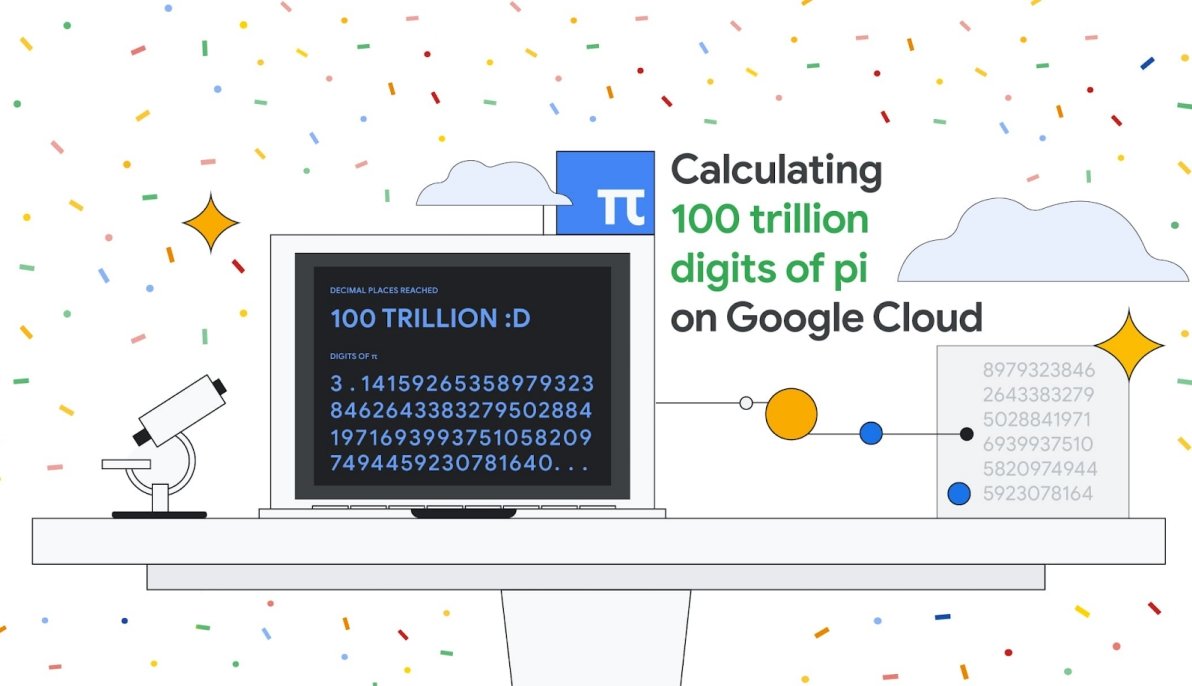As of today we can say that the 100 trillion digits of pi have been found / calculated, which is zero.
The Swiss University of Applied Sciences Graubünden held the previous world record for the calculation of π (Pi), when it calculated it at 62,8 trillion digits.

What is π?
The mathematical constant π is a real number that can be defined as the ratio of the length of the circumference of a circle to its diameter in Euclidean geometry. Number usesit is very common in mathematics, physics and mechanical engineering.
The symbolism comes from the original letter "pi" (pi) of the word "region", and has been established internationally. In the Latin alphabet it is symbolized as Pi, when the Greek characters are not typographically available.
Its programmer Google Cloud, Emma Haruka Iwao, broke her own record three years ago for the number of digits calculated for pi. In 2019 he was able to calculate pi to 31,4 trillion digits while now, using the same Google Cloud y-cruncher program, Iwao was able to calculate Pi's 100 trillion digits, which is zero.
After the process started in October 2021, calculations took until March 2022 to complete. At 157 days, compared to 121 days spent calculating a smaller number in 2019, calculations were two times faster.
According to Iwao, it used the same tools and techniques, but the improved speed is due to the Google Cloud that improved networking to 100 Gbps, balanced Persistent Disks and other features described detailed here.
To calculate the 100 trillion digits, the computer processed about 82.000 TB of data.
If you want to download the 100 trillion digits or see the source code used by Emma Haruka Iwao, you can do it from here.





